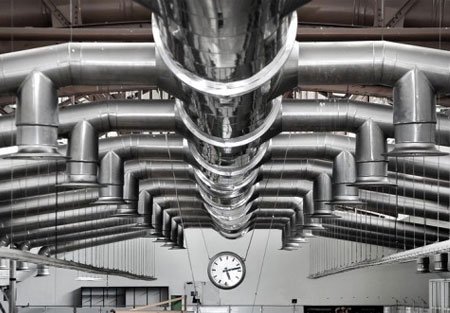WHAT IS HVAC COMMISSIONING?
The major aim of commissioning is to ensure that the HVAC systems in a building are functioning as intended by the owner.
When commissioning becomes more popular – and shortly, required – it is all the more essential to understand the tremendous advantages commissioning may give an owner.
There are numerous definitions of commissioning, as well as a plethora of explanations regarding the commissioning procedure. Commissioning is not even listed in a dictionary.
The commissioning process is the method by which a facility evaluates and validates its existing operational performance, as defined in ISO 9001:2015. It begins at the building construction stage and continues to operations and maintenance.
THREE TYPES OF COMMISSIONING
HVAC commissioning is divided into three categories: initial commissioning, retro-commissioning, and ongoing duty. Initial commissioning occurs during the construction of a new building or on a new HVAC system in an existing structure, and it is known as first commissioning.
Finally, re-commissioning is commissioning HVAC systems that were previously commissioned during the initial commissioning process and the owner wishes to verify, improve, and document their current performance in the future.
The process of HVAC commissioning may begin once it’s been decided which type of commissioning is required for a specific building.
THE COMMISSIONING PROCESS
After the HVAC equipment has been installed, it goes through a series of inspections. A thorough check involves ensuring that the correct equipment and materials were put in their proper places. Next, we make sure that the installation meets construction specifications and manufacturer standards. A bespoke checklist must be created as well as documentation of the installed hardware.
Witnessing equipment operation is the next step after verifying that the right equipment and supplies have been installed. It’s important to double-check and document regular operations, which include startup, shutdown, and procedure. Any concerns with an incorrect sequence of procedures or start-up/shutdown issues must be reported as soon as possible. The HVAC equipment
TAB
The air conditioner’s performance and life depend on the TAB process performed on its HVAC equipment. Each air device on the mechanical plan sheet will have airflow needs in the first commissioning.
Retro-Commissioning may not include design specifications. If this is the case, balancing the equipment on industry norms and comfort is a good idea. To begin, document the HVAC equipment’s initial conditions. Motor RPM, amperage, actual voltage, airflow measurements through each supply and return device are among them.
Verify that the voltage and amperage are correct according to the motor’s specifications, and compare airflow measurements to the airflow design.
Adjusting the exhaust fan speed of kitchen hoods and dishwasher Hoods is common during the design process to balance the units. After the supply and return air has been set to within tolerance, the outside air is balanced for rooftop units with economizers.
The pressure applied to the equipment is crucial for its comfort and efficiency. The exterior air and exhaust fans must be adjusted to achieve a desired pressure before the inside air and exhaust fans can be balanced.
The main doorway is typically the point of pressure measurement. The pressure in a structure is typically modestly increased and measured in inches of the water column. The building balance plan considers fluctuations in pressure at a facility.
To alleviate drafts and enhance infiltration, make sure the design building pressure is reached. The owner must receive a final report including documentation of the equipment and material inspection, verification of start-up, shutdown, and operation, as well as a TAB report for approval.
BENEFITS
The advantages of HVAC commissioning are numerous. The building owner will have complete documentation of the HVAC equipment’s performance, as well as any issues that must be addressed. The owner will know that the equipment is working properly, and that comfort and efficiency will be achieved. We personally recommend ECS Commissioning for your HVAC needs, click here, to learn more.



